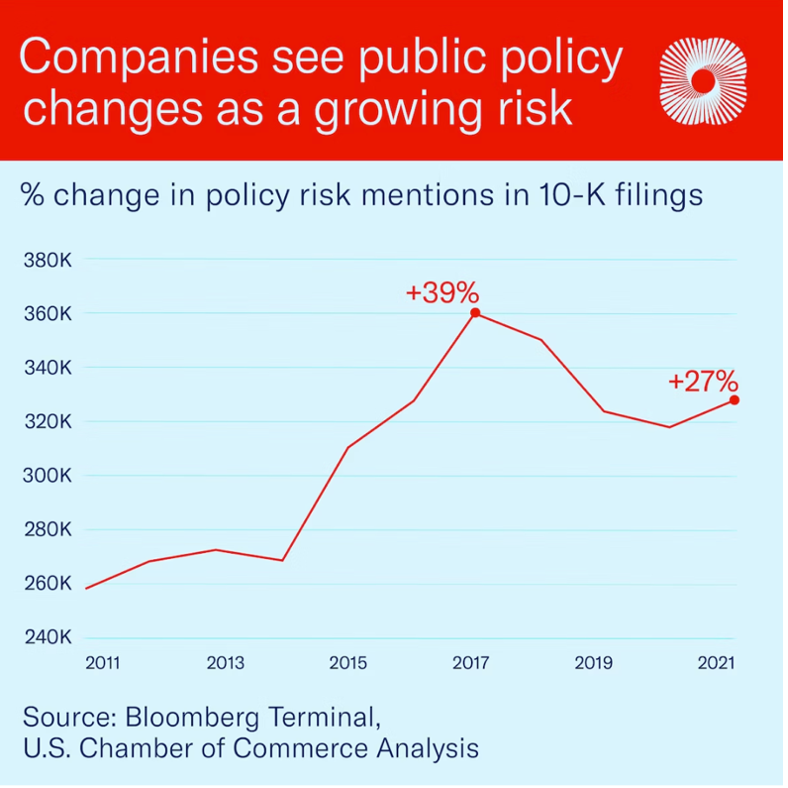BULLPEN BRIEF: New Study: S&P 500 Companies’ Concerns About Public Policy Risks “Have Increased Dramatically Over The Past Decade”
April 17, 2023 | Blog PostBullpen Brief
A new study conducted by the U.S. Chamber of Commerce, and covered by The Wall Street Journal last week, found that S&P 500 companies now report government policies and regulations pose a far greater threat to how corporations conduct their business compared to a decade ago.
For the study, the Chamber reviewed a decade (2011-2021) of 10-K filings (comprehensive reports filed annually by publicly traded U.S. companies) from companies listed on the S&P 500. The review found that these companies mentioned how government actions pose a potential risk to their business about 325,000 times in 2021 – a 27 percent increase over 2011. As the report reads:
“According to data in publicly available reports, large publicly traded companies’ concerns about public policy risks—like changes in taxes, regulations, and enforcement—have increased dramatically over the past decade, compared to other risks. This sentiment was measured by tracking terms found in regulatory filings with the Securities and Exchange Commission (SEC).”

The reason for this sharp increase in public policy risks? The study states that the “increasingly partisan” approach to lawmaking in Washington and “a growing willingness by both parties to pursue aggressive policy changes through regulation” – rather than legislation – are key drivers:
“The most prominent drivers behind this significant jump in public policy risks are constant shifts in power in Washington, an increasingly partisan approach to lawmaking, and a growing willingness by both parties to pursue aggressive policy changes through regulation rather than congressional legislation.”
At BSG, we strongly believe the best path for companies in this increasingly challenging environment is to build teams and systems to anticipate, monitor, and manage policy, political, and competitive risk on a day-to-day basis. That’s also the conclusion of the study’s authors:
“Like other risks, companies must anticipate, monitor, manage, and, when necessary, mitigate risks posed from changes in public policy. This includes closely monitoring public policy developments, engaging with policymakers, and – as we saw for example in response to trade restrictions – adjusting their business operations.”
###